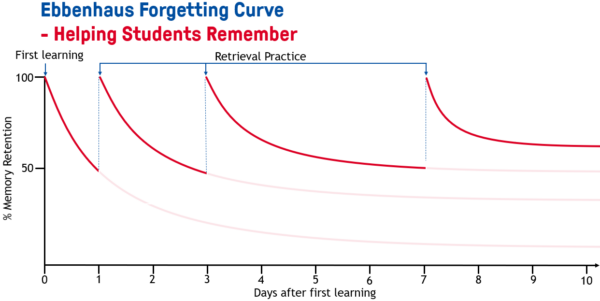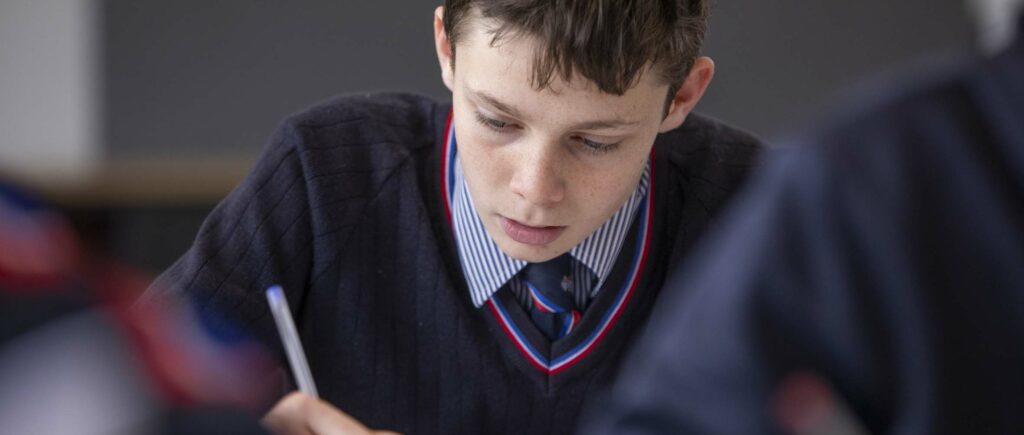Retrieval Practice – The importance of memory and remembering
From the Crowther CentreIn the Effective Learner Program, we’re helping our students to become more effective learners. In this article, I’ll explain the current focus of the program which leverages the simple model of memory that I describe in more detail here
The current focus of the Effective Learner Program is on retrieval practice. Retrieval practice is the act of bringing information from the long-term memory (retrieving it) into working memory.
Retrieval practice helps to prevent information stored in long-term memory from being forgotten, thus is an important tool in helping effective learners to retain that which they have already learnt.
Below is the Ebbenhaus Forgetting Curve, a curve showing the ability to remember learnt information over time. As you can see, after first learning something, the information is quickly forgotten, after just a few days the ability to remember that information is diminished greatly.

Utilising retrieval practice, in increasingly spaced increments, helps to strengthen long-term memory and reduce the propensity of information to be forgotten over time.
A common method for utilising retrieval practice is through the use of flashcards. Over the next term, students in Years 7-10 will be making and practicing using flashcards to help improve their long-term memory of important information and make them more effective learners in the future.
To learn more, you can read details here about Ebbinghaus’s Forgetting curve or watch the video used in initially instructing the students about this content.
Patrick Sanders
Associate Head of the Crowther Centre, Curriculum and Assessment





